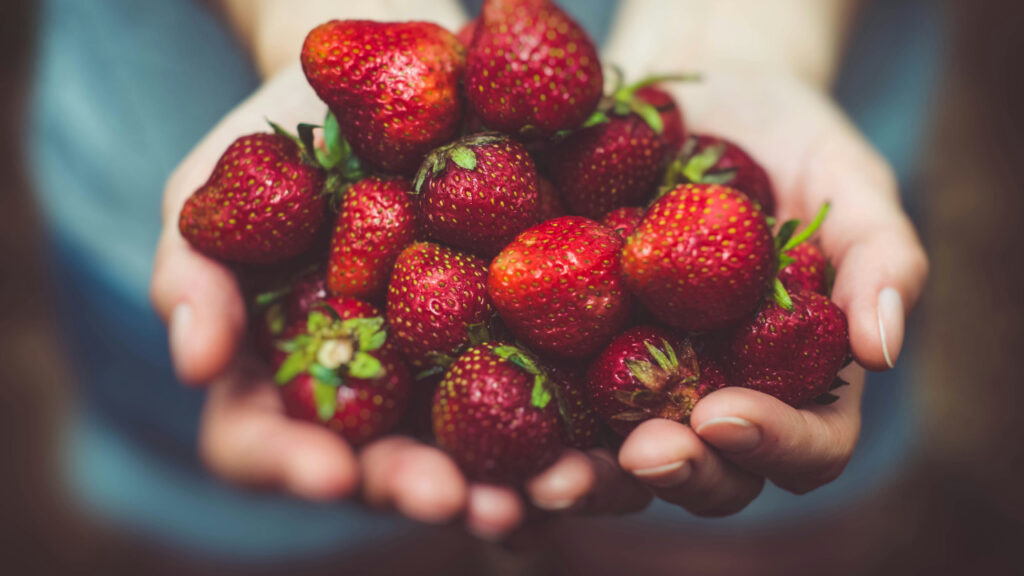Most of us eat on autopilot—scrolling our phones, rushing between tasks, or thinking about what’s next on our to-do list. But meals can be more than just fuel. They can become small rituals of calm, gratitude, and connection. When we learn to slow down and bring intention to the way we eat, even a simple sandwich or cup of tea can feel like a gift. Eating mindfully helps us reconnect with our bodies, reduce stress, and enjoy our food more deeply. Here are some simple ways you can begin to turn even the most routine meals into moments of meaning.
Begin with Gratitude

Before your first bite, take a moment to silently give thanks. You can think about the farmers who grew your food, the hands that prepared it, or the earth that nourished it. This small pause helps shift your mindset from routine to reverence. It also signals to your body that it’s time to relax and receive.
Use All Your Senses

Instead of just tasting your food, notice how it smells, feels, looks, and even sounds. The crisp snap of a carrot, the warmth rising from a bowl of soup—these tiny details can bring you into the present. Tuning in this way makes your meal more satisfying. It’s also a natural way to slow down.
Create a Calm Eating Space

You don’t need a fancy dining table to eat mindfully. Clear a little space, light a candle, or sit by a window. A peaceful setting helps your nervous system shift out of stress mode. It tells your brain: this is a moment to savor.
Put Away Distractions

When we eat while checking emails or watching TV, we miss the experience entirely. Try turning off your screens and putting your phone out of reach. Give your full attention to your food and your body. You’ll likely feel fuller and more content afterward.
Chew Slowly and Thoroughly

It sounds simple, but most of us don’t do it. Chewing more gives your body time to register fullness and improves digestion. It also gives your mind a break from rushing. Just try counting a few chews before swallowing—you’ll notice a difference.
Pay Attention to Hunger and Fullness

We often eat by the clock or by habit, not by what we feel. Before a meal, pause and check in: How hungry am I? During the meal, ask: Am I satisfied? Tuning into these signals helps you eat just enough and feel better afterward.
Add One Fresh Element

Even in a quick or packaged meal, try to add something fresh: a handful of herbs, a squeeze of lemon, or some raw veggies. These simple touches brighten your food and bring you back to the natural world. They’re also full of life and energy, which you’ll feel as you eat.
Share the Meal, Even Virtually

Eating with others adds warmth and connection to a meal. If you’re alone, try a video call or simply think of someone you love while you eat. The sense of shared experience can lift your spirits. Meals have always been about more than food—they’re about belonging.
Use Smaller Plates and Bowls

A smaller dish helps you stay in touch with how much you’re eating and encourages mindful portioning. It can also make a simple meal feel more intentional. Presentation affects how we perceive and enjoy our food. Think of it as framing the moment.
Drink Water Slowly and Mindfully

We often forget that drinking can be a mindful act too. Sip your water as if it’s something precious. Feel the coolness, notice the movement. Even something this small can anchor you in your body and your breath.
Try Eating in Silence Once a Week

You don’t have to go full monk mode. Just choose one meal a week to eat without music, podcasts, or conversation. Let it be a quiet ritual. You might be surprised by what you notice—the taste, the thoughts that come up, the calm.
Reflect After You Eat

When you finish your meal, pause. Ask yourself how your body feels and whether anything shifted during the meal. A few moments of reflection can deepen your awareness over time. It also helps close the meal with a sense of peace.
Notice the Origin of Your Food

Where did your ingredients come from? Were they grown nearby, or shipped across the world? Thinking about your food’s journey builds a sense of connection and respect. It also helps you make more mindful choices in the future.
Treat Simple Foods Like a Ceremony

Even a slice of toast or a bowl of rice can be sacred if you treat it that way. Take time to plate it carefully. Sit down fully. Let yourself feel like this moment matters—because it does.
End with a Small Ritual

When the meal ends, you can add a gentle ritual: a deep breath, a thank you, or a few words of appreciation. These signals help you close the moment with care. Over time, they teach your nervous system that food is a time for rest, not rush.
Bonus: Cook When You Can

Cooking, even simple meals, invites you to connect more deeply with your food. It slows you down and puts you in touch with the textures, smells, and shapes of real ingredients. It also gives you a chance to create something beautiful from scratch. The act of cooking itself can be its own meditation.

Leave a Reply